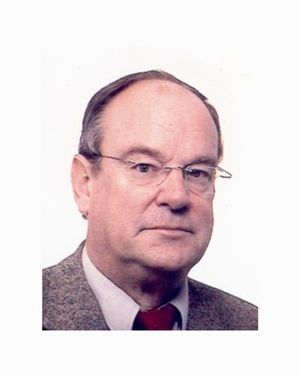Lennart Ljung: Difference between revisions
No edit summary |
No edit summary |
||
| (4 intermediate revisions by 3 users not shown) | |||
| Line 1: | Line 1: | ||
== | {{Biography | ||
|Image=Ljung.jpg | |||
|Associated organizations=Linköping University | |||
|Fields of study=Control systems | |||
}} | |||
Lennart Ljung, professor of electrical engineering at the Linköping University in Linköping, Sweden, is a recognized leader in the area of systems and control research whose contributions have had lasting impact over nearly 35 years. | Lennart Ljung, professor of electrical engineering at the Linköping University in Linköping, Sweden, is a recognized leader in the area of systems and control research whose contributions have had lasting impact over nearly 35 years. | ||
| Line 7: | Line 10: | ||
An [[IEEE Fellow Grade History|IEEE Fellow]] with Bachelor of Arts, Master of Science and doctoral degrees all from Lund University and the Lund Institute of Technology in Lund Sweden, he has received numerous honorary degrees and awards from institutions around the world. | An [[IEEE Fellow Grade History|IEEE Fellow]] with Bachelor of Arts, Master of Science and doctoral degrees all from Lund University and the Lund Institute of Technology in Lund Sweden, he has received numerous honorary degrees and awards from institutions around the world. | ||
[[Category: | == Further Reading == | ||
[[Oral-History:Lennart Ljung|Lennard Ljung Oral History]] | |||
[[Category:Control systems]] | |||
{{DEFAULTSORT:Ljung}} | |||
Latest revision as of 16:00, 3 February 2016
- Associated organizations
- Linköping University
- Fields of study
- Control systems
Biography
Lennart Ljung, professor of electrical engineering at the Linköping University in Linköping, Sweden, is a recognized leader in the area of systems and control research whose contributions have had lasting impact over nearly 35 years.
His book, “System Identification—Theory for the User,” is considered a standard reference source, and his career-defining “System Identification Toolbox” for Matlab, a high-level interactive software package for model estimation has been heralded as both a great scientific and commercial success, with many of its principles having been applied to engineering problems for industry world-wide. In his groundbreaking 1977 paper, “Analysis of Recursive Stochastic Algorithms,” Dr. Ljung defined a method of proving the convergence of stochastic algorithms that provided a highly effective method for their future analysis.
An IEEE Fellow with Bachelor of Arts, Master of Science and doctoral degrees all from Lund University and the Lund Institute of Technology in Lund Sweden, he has received numerous honorary degrees and awards from institutions around the world.
Further Reading
